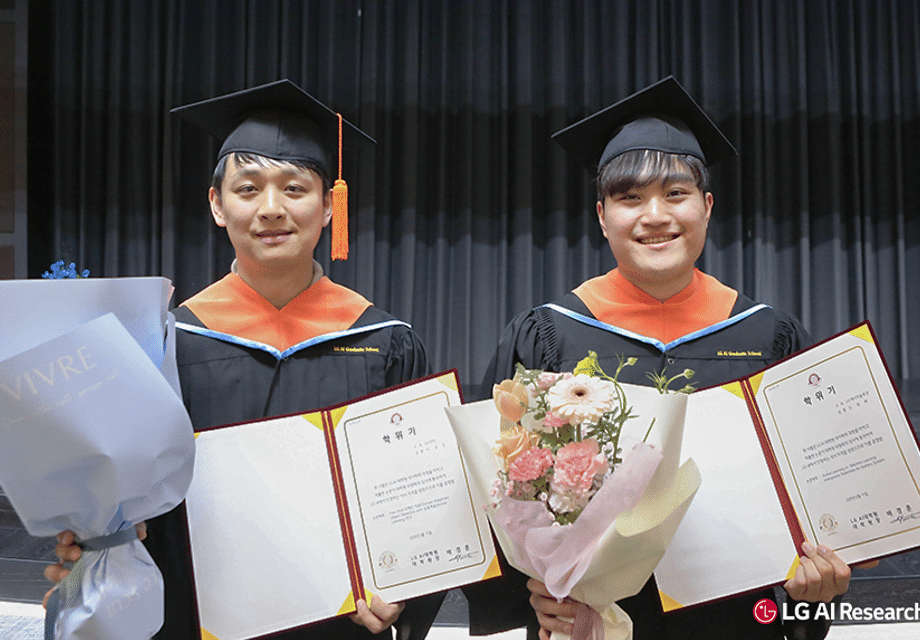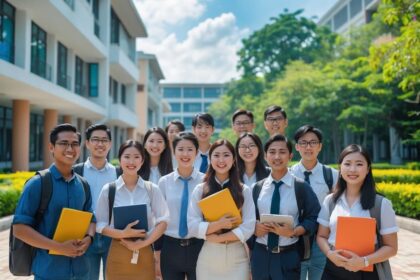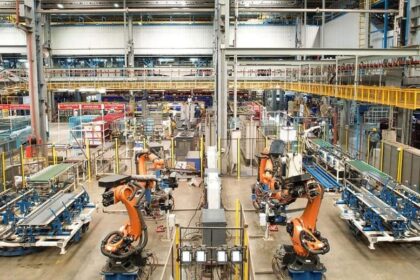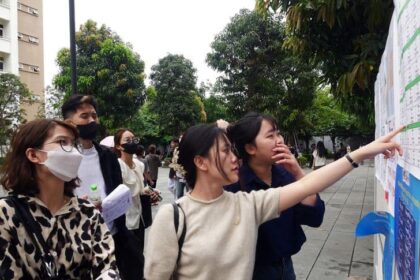A first for South Korea, and a new kind of tech pipeline
South Korea will open the door to a new model of advanced training this fall, as LG begins the nation’s first company run graduate school devoted to artificial intelligence. The LG AI Graduate School, approved by the Education Ministry in August 2025, will open on Sept. 30 in Seoul’s Magok district. It plans to recruit an initial cohort of 30 master’s students in the coming weeks, with classes set to start in March 2026. Degrees will carry the same legal weight as those from conventional universities.
- A first for South Korea, and a new kind of tech pipeline
- Inside LG’s new AI graduate school
- A legal green light that changes who can grant graduate degrees
- Conglomerates and partners are racing to secure AI talent
- Supporters see speed, critics worry about narrow focus
- What this means for universities and public research
- AI education is becoming national policy
- The global race, and why scale and sovereignty matter
- What to watch next
- Key Points
The school grew out of an internal LG AI Research program that launched in 2022. Accreditation arrives as top employers compete fiercely for artificial intelligence specialists and seek to keep skilled workers from leaving for overseas tech hubs. The program sets itself apart by asking applicants to bring clearly defined problems from their factories, labs or design teams, and to solve them with AI over three semesters in one year. Graduates are expected to reintegrate their solutions into daily operations, turning research into measurable gains on production lines and in product teams.
The approach is already shaping careers. At LG Energy Solution, senior researcher Shin Dong hwa enrolled to push beyond day to day model deployment and take on a tougher challenge: accelerating cathode material design at the atomic level using AI. After completing the program earlier this year, he described a shift in both understanding and practice.
Mr Shin said the coursework finally created time to ground his work in fundamentals and explore modern architectures in depth.
“In the workplace, I rarely had the chance to study theory and mostly focused on applying pre built models. Through the master’s program, I was finally able to study AI theory and state of the art model structures in depth, gaining knowledge and ideas I can now use directly in my work.”
His experience captures the dual aim that LG highlights, to deepen theory where needed, yet keep outcomes focused on problems that matter to the company’s businesses.
Inside LG’s new AI graduate school
Admission will not follow the usual path of test scores and general statements of interest. Applicants must propose a research project linked to their current or planned role in the company. Proposals are reviewed for ambition and feasibility. The goal is not a flashy credential, administrators say, but a practical solution that a business unit can adopt quickly. Students will have access to datasets and production systems that are rarely available inside universities, a selling point for specialists in materials science, manufacturing and product design who want to test ideas on real equipment at scale.
LG says the curriculum will marry core concepts in machine learning and computing with applications across the group’s businesses in electronics, chemicals, energy and biotechnology. The school will also cultivate research leaders in areas shaping the next wave of AI, including generative models, multimodal learning and causal inference. Degrees will be fully accredited, and employees who enrolled before formal accreditation will still be able to receive recognized credentials. The campus will be housed in the Magok area of western Seoul, with Lee Hong lak, co head of LG AI Research, serving as the first dean.
How admission and research projects work
Every project begins with a problem statement drawn from a real production line or development team. Students map current workflows, define metrics, select models, and run experiments on company systems. Results are expected within a year so that the sponsoring unit can adopt and maintain the solution. That cadence borrows the tempo of product development rather than the longer timelines of most academic labs. It can sharpen focus and speed, although it also demands tight scoping and strong data engineering support.
The three semester structure is designed to move from theory to experiment to deployment. A typical path might start with a focused seminar on model classes relevant to the problem, shift to rapid prototyping against internal datasets, then conclude with a production ready pipeline. Faculty and mentors include researchers recruited from leading institutions along with senior scientists and engineers from LG’s AI Research Institute.
Faculty, fields and resources
LG plans a faculty mix of early career scholars and industry veterans. That blend can expose students to peer reviewed research while giving them direct line of sight to constraints that matter in factories and data centers. Since the projects sit inside LG’s businesses, students can tap specialized resources. Examples include high throughput experimentation in materials discovery, sensor streams from smart manufacturing lines, and large compute clusters for training and inference. Those inputs are often the bottleneck in applied AI research inside universities, where access to proprietary data is limited.
Program leaders emphasize that theory still matters. Core coursework will cover topics such as optimization, statistics, model generalization and systems engineering. The distinguishing feature is the direction of travel. Instead of asking industry to adapt academic results, the school asks students to adapt academic tools to industry’s concrete problems, then ship code and models that a plant, lab or product team can own.
A legal green light that changes who can grant graduate degrees
This model was not possible until a new law took effect in January (2025). The Special Act on innovation for advanced industry talent allows companies to create in house graduate schools in fields such as semiconductors, artificial intelligence, biotech and mobility. For decades, Korean firms could run internal colleges, but only with programs equivalent to associate or bachelor degrees. Graduate level credentials were reserved for universities or for joint programs where companies partnered with universities to confer degrees.
Under the new framework, a company that meets quality standards can run its own graduate programs that are fully accredited by the state. The Education Ministry describes the system as a way to couple technology focused training with academic research, empowering companies to develop advanced professionals with their own resources while encouraging deeper industry academia cooperation.
Conglomerates and partners are racing to secure AI talent
LG is the first mover under the law, but it is not alone in trying to build a direct pipeline. SK Hynix, the world’s second largest memory maker, has operated SK Hynix University since 2017. It is a training program rather than a degree granting school, with short courses and workshops aimed at semiconductor skills. The firm also sponsors bachelor programs in semiconductor education at Korea University, Sogang University and Hanyang University. Samsung Electronics operates the Samsung Semiconductor Institute of Technology, an accredited in house university started in 1989. Its master’s and doctoral tracks run in partnership with Sungkyunkwan University, a long standing example of the hybrid approach that blends corporate and academic governance.
Other large groups have evaluated similar steps. Hyundai Motor has explored an in house graduate model for mobility and software. Across the tech sector, companies are widening the funnel through hiring blitzes and formal links with campuses. Kakao recently announced groupwide recruitment aimed at so called AI native professionals across its affiliates. Naver Cloud set up a consortium with leading universities to place graduate students in research residencies tied to a national foundation model project. KT has hired experienced AI practitioners while deepening work with global vendors, and LG CNS is expanding internal training and certification with a goal to grow to roughly 1,000 AI experts.
Supporters see speed, critics worry about narrow focus
The Education Ministry argues that accredited company run programs can shorten the distance between learning and deployment. Advocates say this matters in fields where model classes change quickly and where access to data, compute and domain knowledge often determines whether ideas reach production. The approach could also slow brain drain by giving high performers a clear path to advanced training without leaving their employer.
Academic leaders welcome fresh investment in training yet caution against turning graduate education into a series of tight deliverables. Professor Lee Kyoung jun, who teaches AI and business at Kyung Hee University, raised a familiar concern about mission and scope. He contrasted independent inquiry in universities with the pull of company priorities.
“A corporate graduate school can deliver strong, one time lectures from practitioners. But sustaining a rigorous curriculum is different. Universities exist for independent inquiry. Companies risk narrowing the focus too much to their immediate needs.”
There is also a budget question. Universities depend heavily on competitive government research grants. If corporate institutes begin competing for the same pools of funding, that could stretch already tight budgets. Many businesses already cooperate with universities through joint labs and co supervised degrees. Supporters of the company run model say both tracks can grow, with firms investing directly in internal programs while still funding open research on campuses.
Education officials counter that the new schools are meant to complement, not replace, traditional graduate programs. Choi Eun hee, a director general in the ministry, outlined what the government hopes to see.
“This system allows companies to cultivate advanced talent directly, using their own resources. The approval of LG’s graduate school sets a new paradigm for human resource development in high tech industries and is expected to further stimulate industry academia cooperation.”
For participants like Mr Shin, the trade off felt worthwhile. He saw the benefit of immersion in theory that was immediately applied to a problem his lab needed to solve.
“I can now take ideas from a seminar and test them on real data and hardware within weeks, not months. That accelerates both learning and impact.”
What this means for universities and public research
Universities remain the backbone of fundamental research in South Korea. State funded AI graduate schools at KAIST, Korea University and Sungkyunkwan University launched in 2019 and built faculty, labs and degree programs that serve the broader economy. Those schools train students who move into startups, public research institutes and companies without being tied to a single employer. Their mandates also include open publication and long horizon inquiry.
Company run graduate programs will likely steer toward applied research. That skew can produce rapid returns and valuable intellectual property, yet it raises questions about publication norms, data sharing and the portability of student work across employers. Regulators will need to watch for academic rigor in coursework and fair assessment of research contributions. Credit transfer between institutions, protections for student researchers, and clear rules on confidentiality and authorship will shape the quality and credibility of the model.
AI education is becoming national policy
South Korea is investing across the pipeline, not just at the graduate level. The government plans to train all teachers in AI technology and is rolling out AI digital textbooks in schools. The idea is to grow literacy well before students reach university, so that by the time they enter technical majors they already understand how modern AI systems work and how to use them responsibly. This early investment mirrors moves in other countries that are weaving computing and data science into general education.
Workforce programs are evolving as well. Government agencies fund collaborative projects that pair companies with university labs. National supercomputing and data initiatives aim to lower barriers for labs that do not have access to proprietary infrastructure. These steps acknowledge a reality of modern AI, that compute, data and domain expertise are all needed to convert research into products and processes that scale.
The global race, and why scale and sovereignty matter
The push for company run graduate schools sits inside a wider contest for AI leadership. Countries are seeking scale in data, models, and deployment. China’s large user base and rapid rollout of digital services give it scale advantages. Western countries are looking for ways to pool resources and harmonize rules so that companies and labs can train larger models and field them safely. For a mid sized economy like South Korea, the strategy often blends national investment, tight industry academia collaboration and selective partnerships with global vendors.
There is another layer to consider. Governments and firms speak about digital sovereignty to ensure control over sensitive data, language models and cloud infrastructure. Vendors offer dedicated cloud regions and specialized hardware to meet those goals. Some analysts argue that rhetoric can mask new forms of dependence if core technologies remain proprietary. The fine print matters. Contracts that secure access to compute and software, clear rules on data use, and commitments to build local skills will determine whether training programs truly strengthen national capacity.
What to watch next
LG’s school will begin recruiting the first class soon, with teaching to start in March 2026. Officials say a doctoral program is planned, pending review by the Education Ministry. How cohorts balance theory and applied work will be closely watched, as will the publication record and the quality of capstone deployments inside LG’s businesses.
The policy framework is still young. Other companies are studying the model, and regulators are collecting feedback from industry and universities. If the approach scales, South Korea could see a small network of accredited corporate graduate schools in a few high priority fields such as semiconductors, robotics and biotech. Their success will hinge on rigorous curricula, transparent governance and the ability to produce graduates who can lead inside their home companies while still contributing to the wider scientific community.
Key Points
- LG received government approval in August 2025 to launch the nation’s first company run AI graduate school, opening Sept. 30 in Seoul with classes starting March 2026.
- The program will admit about 30 master’s students in its first cohort, with degrees accredited at the same level as those from universities.
- Applicants must bring real problems from their factory, lab or design team, solve them with AI over three semesters, and reintegrate solutions into work.
- LG plans a faculty mix of academic researchers and senior staff from its AI Research Institute, with access to proprietary data, equipment and compute.
- The initiative is enabled by a new Special Act that allows graduate level schools run by companies in advanced industries.
- Other firms are exploring similar models; SK Hynix runs internal training and sponsors university programs, while Samsung operates an accredited in house university with partnered graduate tracks.
- Supporters highlight faster translation of research to deployment, while academics warn of narrow focus and pressure on public research funding.
- South Korea is also upgrading AI education in schools and universities, aiming to build a broad talent base from early grades to graduate study.
- Global competition for AI talent and infrastructure is intensifying, making scale, partnerships and careful governance central to national strategies.
- LG seeks approval for a future doctoral track, and the performance of the first cohorts will shape the model’s credibility and expansion.












